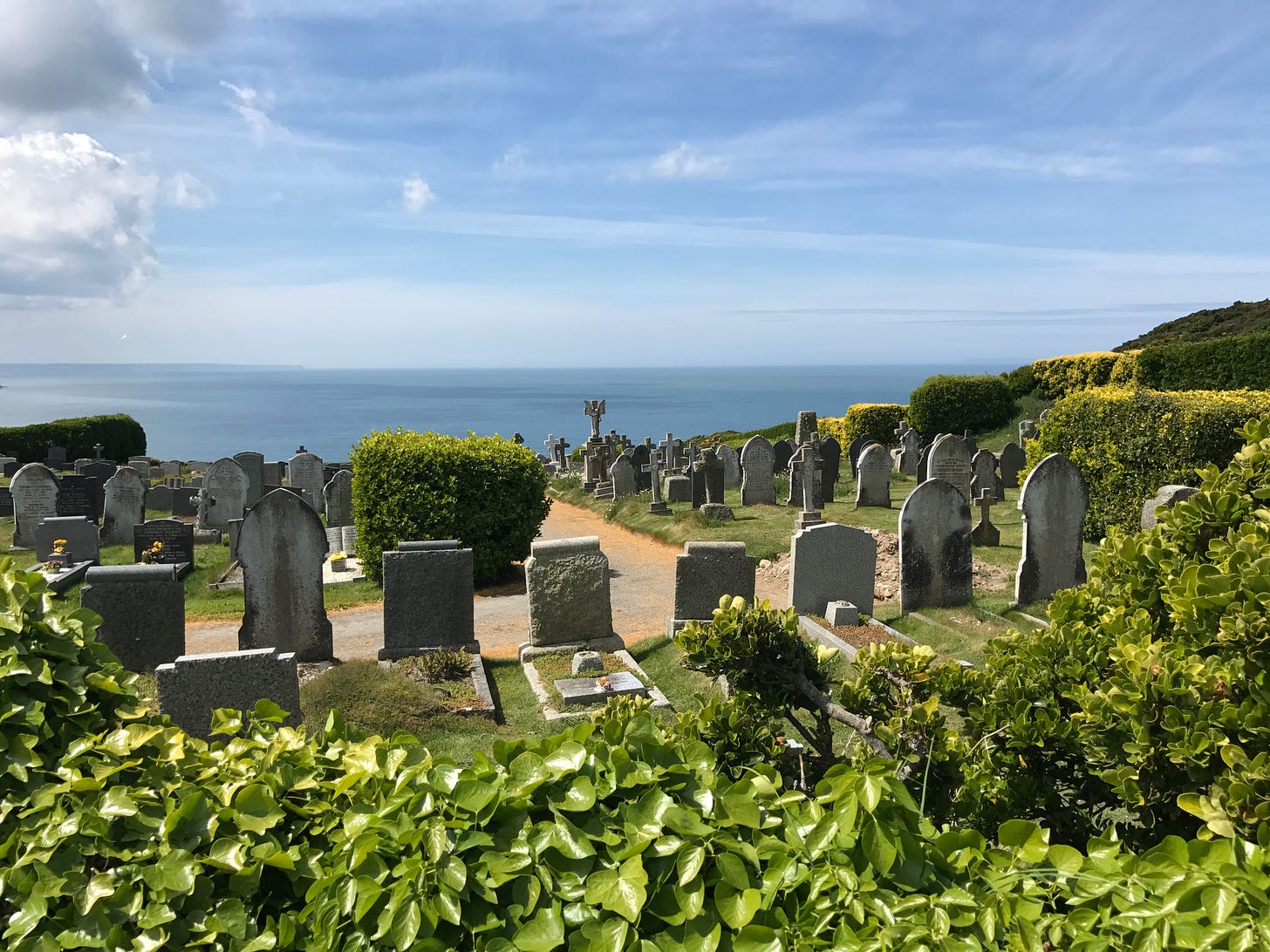The phone rang as my partner and I were heading out for our usual Saturday night at the pub. It was my friend Helen calling to tell us Mark, one of our great chums, had been run over by a lorry when crossing the road earlier that day. He was in intensive care, his wife by his side. He wasn’t expected to last the night. He didn’t.
He died
He was just 35. Husband to my friend and father to their children aged four and two. He’d just made equity partner in his law firm.
The news sent shock waves through our friendship group. Healthy men of that age don’t die. They don’t get run over.
I’d only seen him 6 weeks earlier as he walked out of the pub to take the children home. The image is ingrained in my mind – one child holding his hand, the other, tired, slung over his shoulder. Him smiling that cheeky grin. The last time I saw him.
Why am I telling you this 28 years later?
The haunting
Mark’s death still lives with me.
I was out to dinner with two luminaries from the financial profession recently. One in their 30s, the other early 40s, each with young children. I can’t recall how we got on to the subject of life insurance but I was haunted when they each said they had little life insurance.
One of them, let’s call him Ben, explained he was young, fit, healthy and didn’t expect to die. Of course he didn’t…
Memories flooded in. I challenged him, hard.
“Do you insure your car?’
“Do you insure your dog?”
“Do you insure your home contents?”
He sheepishly agreed he did, clearly feeling the thrust of my argument.
I continued.
“As a fit, young, non smoker, life insurance for you and your wife is as cheap as chips. What’s stopping you?”
Of course, nothing other than his own probability assessment, sense of immortality, optimism bias, busyness and ‘availability bias’ – he’d likely not experienced the death of someone young and close to him.
He said he would get onto it. I haven’t checked in with him. Yet.
Why aren’t people properly insured?
When I trained as a mortgage and financial adviser in the late 80s, the first thing we were taught was to assess the impact on the family of the death of the main breadwinner. And the impact of the death of the person, in those days most likely the woman, who stayed at home to look after the kids.
This priority seems to have slipped down the agenda for many financial planning firms I meet. I have heard reasons ranging from - “Our clients are wealthy; they don’t need it” to “It’s a complex subject so we outsource it” – as if pensions or estate planning aren’t complicated! To be fair, both may be true but…
I’ve reflected on why life insurance might be ‘undersold’. I have a few theories; Death and ill health are not sexy; Talking about life insurance and death might seem a little salesy if not clearly related to a need - after all, we rarely wake up thinking we need life insurance; Budgets can be tight and; It can be a tough conversation to get a client to visualise their own, or their partner’s, mortality.
In addition, from a practical perspective; The forms are long winded; Underwriting can take an age; And, in some situations a life policy should be written under trust adding another layer of complexity; Not to mention how to charge for the work.
The opportunity
This is a real missed opportunity. For the client, life insurance brings peace of mind, security and significant positive financial and emotional impact in the sad event it is ever needed.
And for the financial planner, it is the most important way to add value to a family’s security and financial wellbeing. As well as a clear business opportunity.
Fortunately, my friend Mark, had reasonable life insurance in place albeit the family’s lifestyle would have been severely affected were it not for the insurance settlement from the driver that caused the accident. Clearly not something to be relied on.
You
As ever, I am interested in you. I know I have a mixed readership so I would like to pose a couple of questions:
If you have liabilities and/or children still in education, are you confident your liabilities could be settled and your family’s lifestyle maintained if you were to die?
If you no longer have this need but have adult children with liabilities and kids, how might you start this conversation and encourage action?
If you are a financial planner is life and ill health protection the first thing you look for when dealing with your clients? And if not, why not? And, most importantly,
What’s the real cost of putting off this conversation and action?
Do drop me a line, I’d love to hear your thoughts and views.
Bit of a tough one this week. Sorry not sorry.
And remember, you are never going to be any younger than you are today, what are you putting off because it falls into the ‘tough’ category?
Until next week my friends
Ruth x
If you aren’t already, please consider subscribing to 1000Weeks or share my words with someone you think might enjoy it. Please do leave me a like, and join in the conversation by leaving me a comment below. Thank you.



What a powerful message Ruth.
That was such a premature passing Ruth and it stuck with me. The need for life cover was one of the financial matters I always had in place. Took me a long time to implement the 3-6 months of outgoings as a savings minimum!